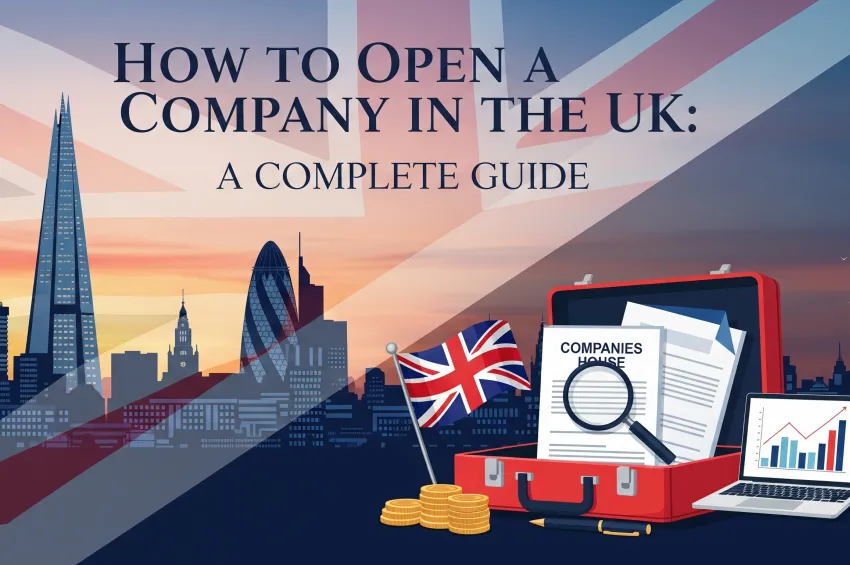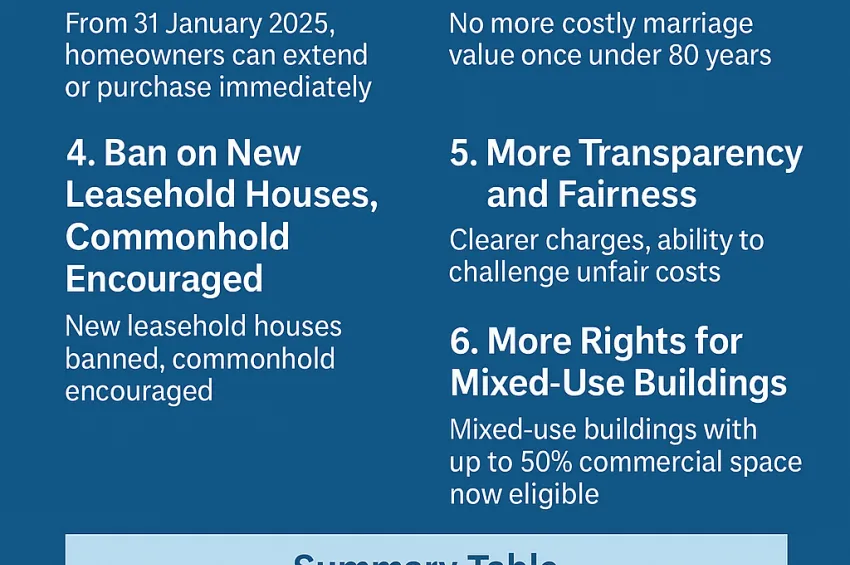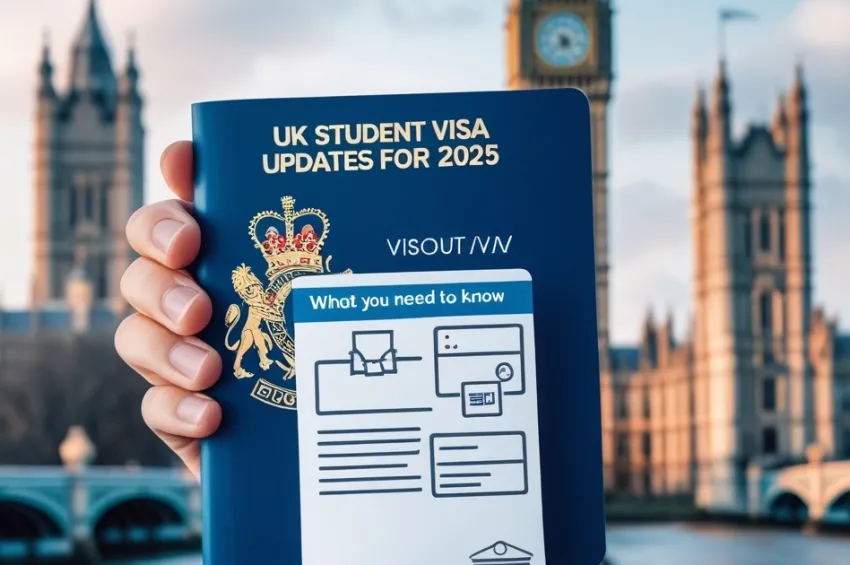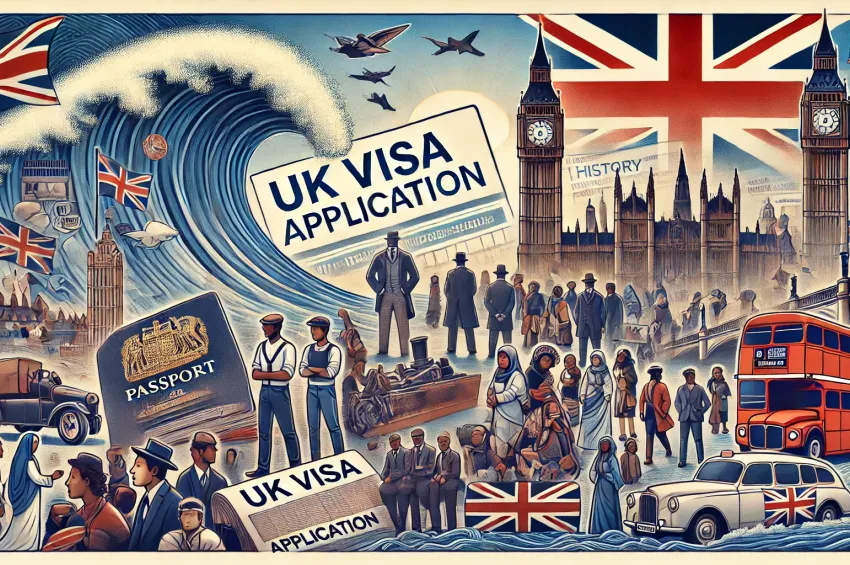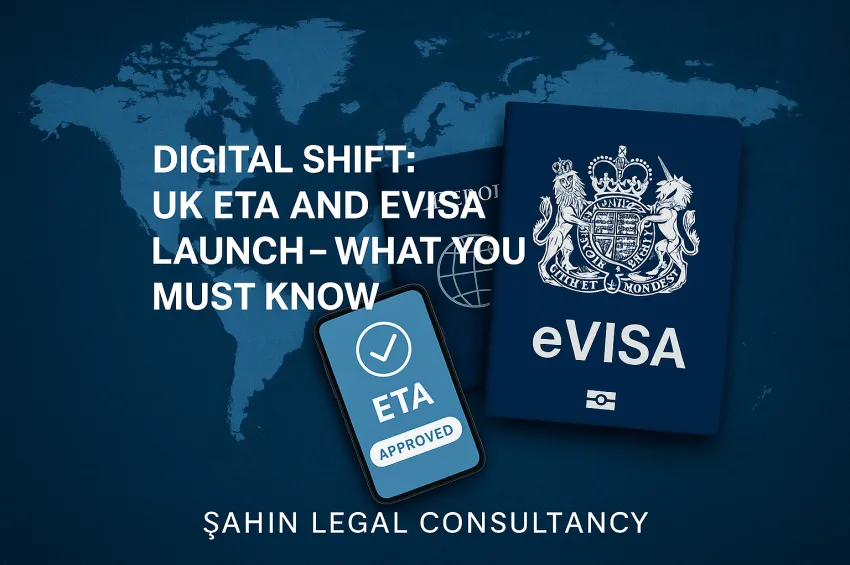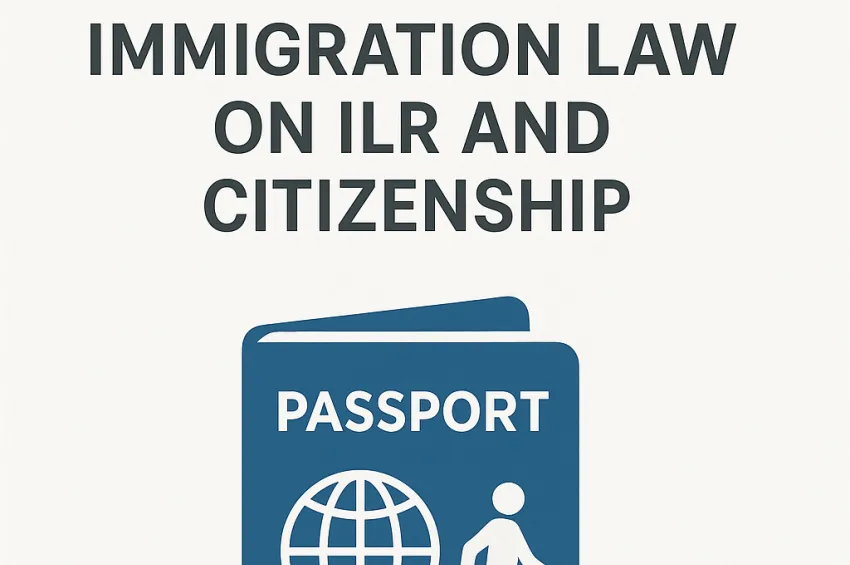
Introduction
Lately there has been a lot of discussion, worry, and speculation about the UK government’s 2025 Immigration White Paper proposals — particularly around how long people will have to wait before qualifying for Indefinite Leave to Remain (ILR) (settlement) or British citizenship. Some believe these changes might apply retrospectively, potentially disrupting the rights of migrants who are already on track under existing rules. Others are less certain: are some visa-holders protected, or can rule-of-law principles block retroactive changes?
In this post, I will:
-
Summarise the proposed changes and current status
-
Analyse whether they could be applied retroactively
-
Discuss how different visa categories (including Ankara/ECAA, work, family) might be impacted
-
Offer practical advice to those approaching ILR or citizenship
Let’s dive in.
1. What the White Paper Proposes
In May 2025, the UK government published “Restoring control over the immigration system”, a White Paper with ambitious reform proposals.
Key proposals relevant to ILR / settlement / citizenship
-
The standard qualifying period for ILR (settlement) for most visa-holders would increase from 5 years to 10 years.
-
The White Paper describes settlement as a privilege, not a right, and intends to make settlement and citizenship part of a merit-based or earned model rather than an automatic entitlement after fixed years.
-
Some migrants may be able to reduce the qualifying period through enhanced “contributions” (e.g. working in priority sectors or demonstrating certain levels of integration).
-
The White Paper also proposes changes to citizenship requirements, effectively aligning them to the revised settlement regime.
-
However, these remain proposals — they are not yet law. The government must amend legislation and the Immigration Rules to give effect to them.
-
Some changes associated with this White Paper have already been introduced via a Statement of Changes (HC 997, 1 July 2025), particularly in work/skills routes (salary thresholds, skill levels) — but not changes to settlement duration.
2. Can These Changes Be Applied Retroactively?
This is a critical concern for many, and the answer lies in constitutional principles and how new immigration laws are drafted.
A. The rule of law and non-retroactivity
In UK constitutional doctrine, retroactive changes that impair existing rights are disfavoured unless Parliament clearly states they apply retrospectively. The doctrine of legal certainty suggests that people should be able to rely on the law in force when making decisions (e.g. when to apply for settlement).
Thus, to apply the 10-year ILR rule to people who already applied or were eligible under the 5-year rule would likely raise serious legal challenges. If Parliament intends for changes to affect existing rights, it must do so explicitly in the legislation or the amendment to the Immigration Rules.
B. Transitional arrangements
It is standard when major immigration changes are introduced to include transitional or grandfathering clauses. For example:
-
Existing visa-holders may be allowed to continue under the “old” 5-year settlement schedule
-
Or, a cut-off date may be set after which the new rules apply
-
Special carve-outs or protections might exist for some visa categories
Given the sensitivity, it is highly likely the government will provide transitional protections for most people already in the pipeline. The White Paper signals the intention to avoid unfairness.
C. Limitations and uncertainty
-
The White Paper proposals are not binding yet — they need legislative and rules-level implementation.
-
Until the amendments are enacted, the 5-year route remains the law.
-
Legal challenges might arise if retroactive changes are introduced without adequate safeguards.
In short: while change is coming, anyone who already holds a visa path to settlement is unlikely to have their rights entirely wiped out — but uncertainty remains until final rules are published.
3. How Different Categories Might Be Affected
Let’s examine how various visa routes might fare under these changes, including Ankara / ECAA / Turkish nationals, work visas, family routes, etc.
A. Ankara / ECAA / Turkish Workers
-
The “Ankara Agreement / ECAA Turkish Worker / Businessperson” route was a special arrangement for Turkish nationals, allowing them to run businesses or be self-employed in the UK and eventually settle.
-
Following Brexit, new applications under Ankara/ECAA were closed (post-31 December 2020). However, existing Turkish workers who held valid leave under ECAA before that date may still continue extensions and apply for settlement under Appendix ECAA Settlement (i.e. the path to ILR after 5 years)
-
This category thus has a protected path under the existing rules, albeit closed to new entrants. Any changes to ILR duration likely will not interfere with those who already benefit from ECAA-based settlement rights — they would likely be grandfathered in.
-
Nevertheless, Turkish nationals cannot use the Ankara/ECAA route for new applications — the Home Office has confirmed no new businessperson visa applications under that route.
B. Skilled Worker & Work Routes
-
Most workers under the Skilled Worker route currently qualify for ILR after 5 years (subject to continuous residence, earnings, absence limits).
-
Under the White Paper, most work visa categories will shift to require 10 years of residence for settlement.
-
Work route changes are already being rolled out: from 22 July 2025, the rules change for skilled workers (salary thresholds, skill levels).
-
But the White Paper suggests transitional protections will be applied: existing workers may retain their entitlement to five-year settlement under the old rules, even if switching roles.
-
For new applicants, the new 10-year regime is likely (though details may vary).
C. Family / Spouse / Partner Routes
-
According to current public commentary and guidance, family routes (spouse, partner, parent, etc.) are less likely to be impacted by the increase in ILR duration. Citizens Advice notes it does not expect the 10-year rule to affect family visas, though clarity is required.
-
The White Paper intends to overhaul the family system, but does not explicitly commit to applying the 10-year rule there.
-
In any event, if settlement duration for family visas does change, transitional protections are expected.
D. Long Residence / 10-Year Routes
-
There is a separate 10-year long residence route (for people legally in the UK for ten years continuously) that already exists in the Immigration Rules.
-
Some commentators suggest this route may be retained or even expanded under the new system.
-
If the White Paper introduces the 10-year threshold for all routes, the long residence route may become redundant or its role altered.
4. What Should Applicants & Pending ILR Seekers Do Now?
Given the uncertainty ahead, here’s practical advice:
 Act Sooner Rather Than Later
Act Sooner Rather Than Later
If you are approaching 5 years’ residence (or already beyond), you may want to apply for ILR or citizenship before any rule changes are enacted, assuming you meet all requirements. That locks in your entitlement under the current system.
 Prepare & Monitor Official Guidance
Prepare & Monitor Official Guidance
Carefully monitor official Home Office / GOV.UK announcements. The White Paper proposals require implementation via legislation and Immigration Rule changes. Always rely on the latest rules, not media speculation.
 Gather & Strengthen Evidence
Gather & Strengthen Evidence
Start collecting proof of continuous lawful residence, earnings, qualifications, English language tests, and character evidence early — these are likely to remain pillars in any future system.
 Seek Legal Advice Before Switches or Renewals
Seek Legal Advice Before Switches or Renewals
If you are considering switching visa types or making major changes (job change, moving, leaving UK for spells abroad), consult immigration counsel to avoid unintentionally jeopardising your path.
 Know Your Rights & Challenge Unfair Retrospective Moves
Know Your Rights & Challenge Unfair Retrospective Moves
If the government attempts to apply a 10-year rule retroactively without proper transitional safeguards, legal challenges based on fairness, legitimate expectation, and rule of law may be viable.
Conclusion
The government’s 2025 White Paper signals a more demanding, merit-based future for UK settlement and citizenship. The shift from a 5-year to a 10-year qualifying period will, if implemented, represent one of the biggest structural changes to modern UK immigration law.
However, crucial protection lies in how those changes are enacted. Constitutional safeguards against retroactive interference, transitional arrangements for existing visa-holders, and careful legal drafting will all shape whether people already in the system are safe from drastic disruption.
For those currently planning ILR or citizenship, the safest path is to aim for settlement under existing rules while keeping a close eye on final legislation and seeking professional advice if uncertain.


